Wisdom demands a new orientation of science and technology towards the organic, the gentle, the non-violent, the elegant and beautiful. E.F. Schumacher.
E.F. Schumacher produced inspiring models and practical tools that empowered people to shape their futures. Best known for his book Small Is Beautiful, he believed that economics should serve people, rather than the other way around.
He also focused on developing forms of technology that enabled people to take more charge their lives, rather than rely on big institutions or corporations.
Towards the end of his life Fritz, as he was known, wrote about the spiritual underpinnings of his approach. Central to this was his notion of good work.
He believed that work had a three-fold purpose.
To provide people with useful goods and services.
To provide people with the chance to use and perfect their gifts.
To provide people with the chance to collaborate with others in order to liberate themselves from inbuilt egocentricity.
Fritz believed that our education systems should be geared to helping people to pursue these themes. He expanded on these ideas in his later books, such as Good Work and A Guide For The Perplexed.
Background
Ernst Friedrich Schumacher was born in Germany in 1911. He studied as a Rhodes Scholar at Oxford before settling in England in 1936.
After the Second World War he acted as an economic advisor to organisations helping to rebuild the German economy. He then became Chief Economic Advisor to the British Coal Board, a post he held between 1950 and 1970.
Despite playing a key role in shaping British industry, Fritz began exploring alternative models. During the 1950s he acted as an economic advisor to countries in Asia.
This led to him developing what he called Buddhist Economics. The principles he espoused included:
That good work plays a vital part in healthy human development.
That developing local resources for local needs is the most rational way of economic life.
That it is possible to empower local communities to employ appropriate technology they can use to shape their futures.
Schumacher’s ideas need to be seen in relation to the economic beliefs prevalent from the 1950s onwards.
The prevailing wind was that bigness is best. This led to building bigger schools, hospitals, factories, institutions, aid programmes and government departments.
Such an approach produced some upsides, but there were also downsides. Bureaucrats controlling the levers of power were further away from the effects of their decisions.
People on the ground began to feel less able to shape their futures. Fritz would later write:
“Ever bigger machines, entailing ever bigger concentrations of economic power and exerting ever greater violence against the environment, do not represent progress: they are a denial of wisdom.”
Ever the practitioner, Fritz began translating his ideas into action. This led to creating The Intermediate Technology Group.
This aimed to enable local communities to employ the appropriate technology to meet their needs. Here is an introduction to the history of the group, which is now called Practical Action. Their web site says:
In 1965, radical economist and philosopher Fritz Schumacher had an article published in the Observer.
In it he pointed out the inadequacies of conventional aid policies based, as they were then, on the transfer of modern, capital-intensive and large-scale technologies to developing countries which did not have the financial resources, technical skills or mass markets to accommodate them.
He argued that there should be a shift in emphasis towards ‘intermediate technologies’ based on the needs and skills possessed by the people of developing countries.
The article aroused considerable interest at home and abroad from academics, politicians and the development community … and in 1966 the Intermediate Technology Development Group (ITDG) – now known as Practical Action – was born.
The Group proved extremely effective in enabling local communities to take charge of their futures. You can discover more about their present work at:
Fritz reached a moment of decision in his life in 1970, says Barbara Wood, in her book Alias Papa. He left full time work with the Coal Board to write the books that had been on his mind for years.
Barbara explains that Fritz talked about how Konrad Adenauer and Winston Churchill both started new and successful lives at the age of sixty. So why shouldn’t he?
This eventually led to him being asked to visit nations across the world. Here is a video of talking about Buddhist Economics.
Fritz began by producing Small Is Beautiful, which was published in 1973. The book would have a remarkable effect on people for several generations. More than thirty years later, Kamran Mofid would write:
“Schumacher’s Small is Beautiful is an appeal to the deep instinctive understanding of the common good that all people share.
“It is an appeal to our essential humanity. It deals with some of the most pressing concerns of people the world over, concerns which every generation must consider and answer.
“The book encourages us to reflect on and to understand things we all seem to have forgotten:
“What is Education? What is Knowledge? What is Wisdom? What is the source of true happiness and well-being?
“What is the good life? What is the purpose of economic life? What does it mean to be a human being living on a spaceship with finite resources?”
Fritz wrote in Small Is Beautiful:
“Call a thing immoral or ugly, soul-destroying or a degradation of man, a peril to the peace of the world or to the well-being of future generations: as long as you have not shown it to be ‘uneconomic’ you have not really questioned its right to exist, grow, and prosper.”
The modern economist, said Fritz, measures the standard of living by the amount of annual consumption. This assumes that people who consume more are better off than those who consume less.
He went on to show how people can live meaningful lives by doing good work and caring for the planet. Kamran Mofid adds:
“The remedy he proposed – a holistic approach to human society, which stressed small scale, localised solutions – flew in the face of economic orthodoxies of the time.”
Fritz wrote: “I have no doubt that it is possible to give a new direction to technological development, a direction that shall lead it back to the real needs of man, and that also means: to the actual size of man. Man is small, and, therefore, small is beautiful.”
Looking ahead, he believed the aim of societies should be to enable people:
“To obtain the maximum amount of well-being with the minimum amount of consumption.”
Below is a link to a film portrait of Fritz. Here is the introduction from the National Film Board of Canada that made the film.
Up to age 45, Schumacher was dedicated to economic growth. Then he came to believe that the modern technological explosion had grown out of all proportion to human need.
Author of Small Is Beautiful – A Study of Economics as if People Mattered and founder of the London-based Intermediate Technology Development Group, he championed the cause of “appropriate” technology.
The film introduces us to this gentle revolutionary a few months before his death.
Here is the link.
https://www.nfb.ca/film/small_is_beautiful
The Role of Education
Fritz believed in the role of education in enabling people to develop wisdom. Unfortunately, he said, modern education has become atomised.
Education should instead enable people to connect with the key issues of life – such as how they could be truly healthy and happy. He said that it should help people:
To act as spiritual beings;
To act as neighbours and to render service;
To act as responsible people.
To be creatively engaged, using and developing the gifts that they had been blessed with.
Fritz believed it was vital to be true to the spirit of the Earth that has given us life. The danger was that we would become disconnected.
Therefore we needed to recognise what was truly important in life. Writing in A Guide For The Perplexed, he explained:
“The generosity of the Earth allows us to feed all mankind; we know enough about ecology to keep the Earth a healthy place; there is enough room on the Earth, and there are enough materials, so that everybody can have adequate shelter; we are quite competent enough to produce sufficient supplies of necessities so that no one need live in misery.”
Fritz left an enduring legacy. He used his talent to enable people to do good work and build a better world.


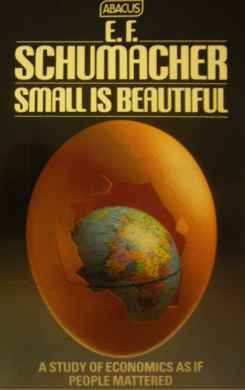
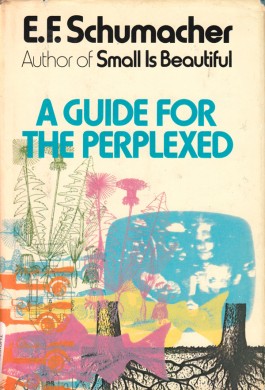
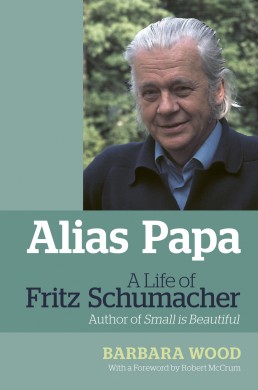
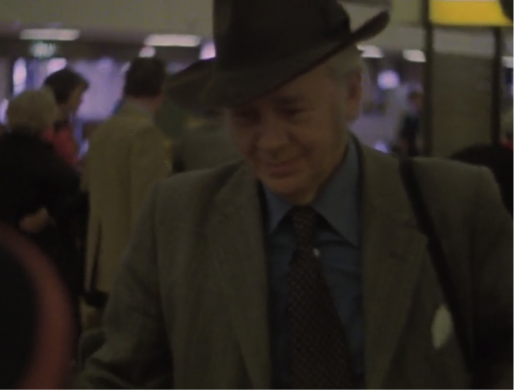
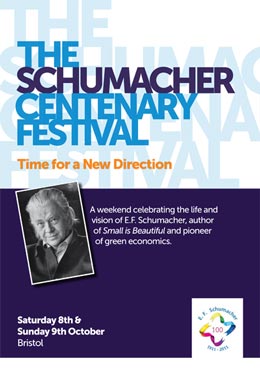




Leave a Reply